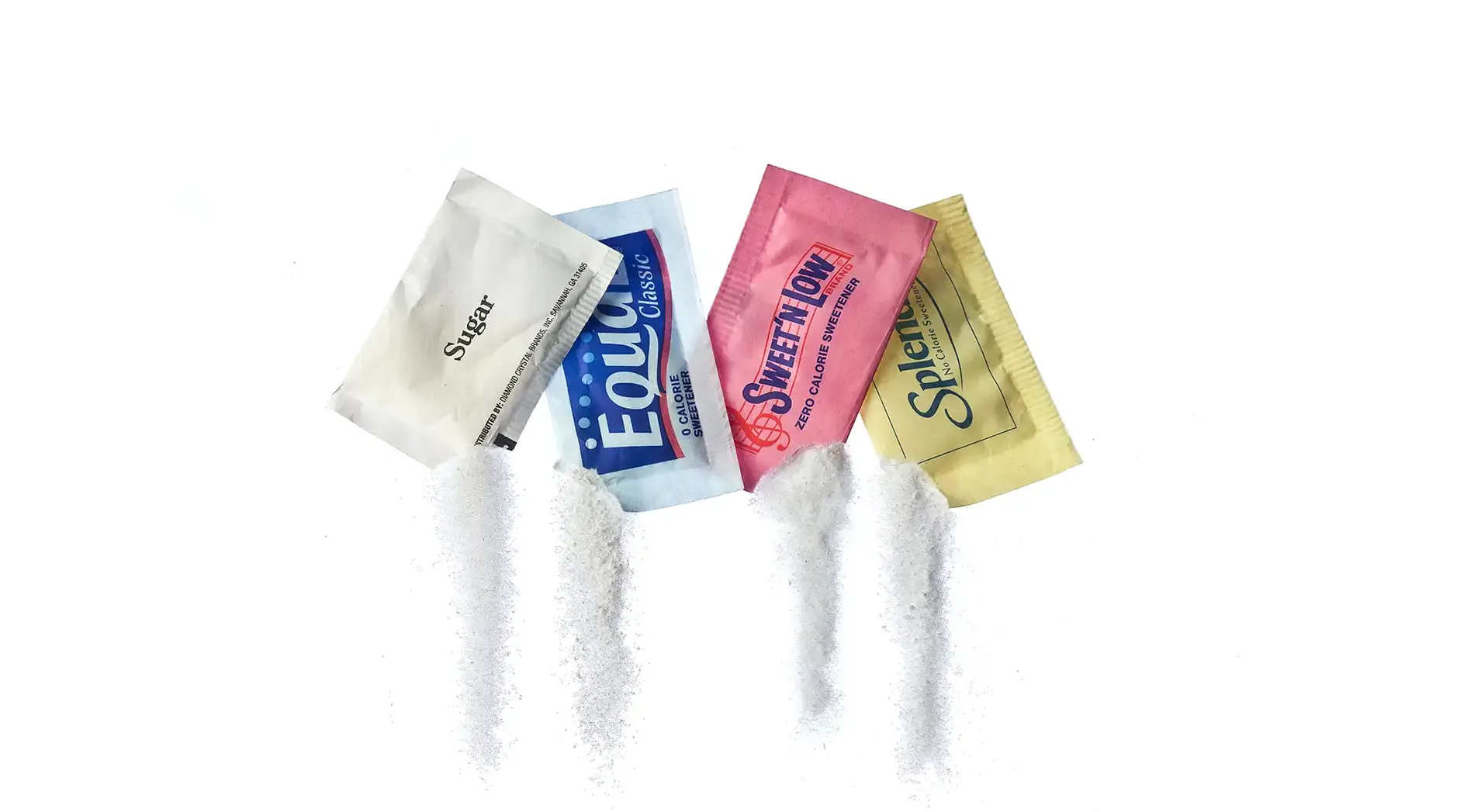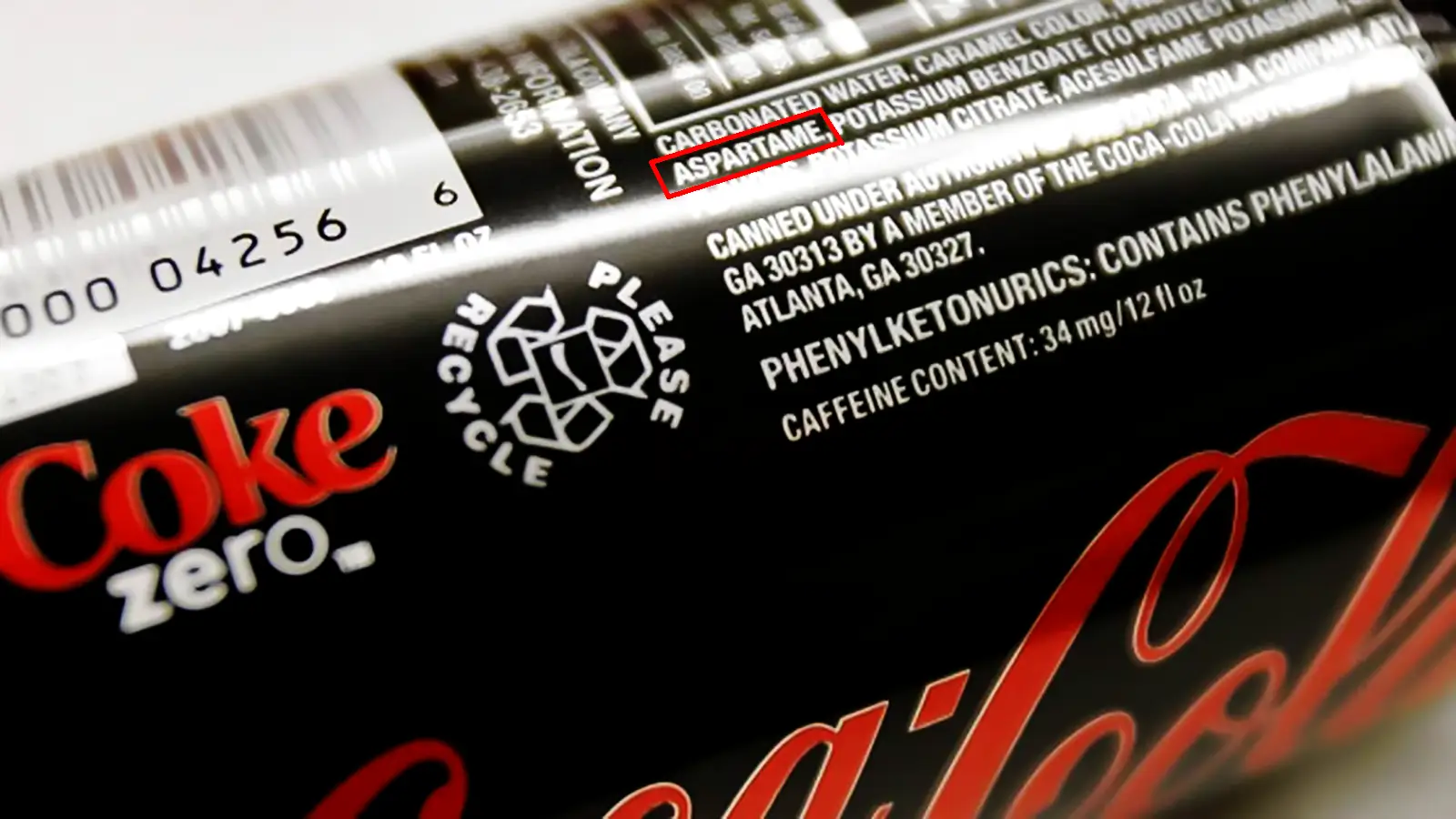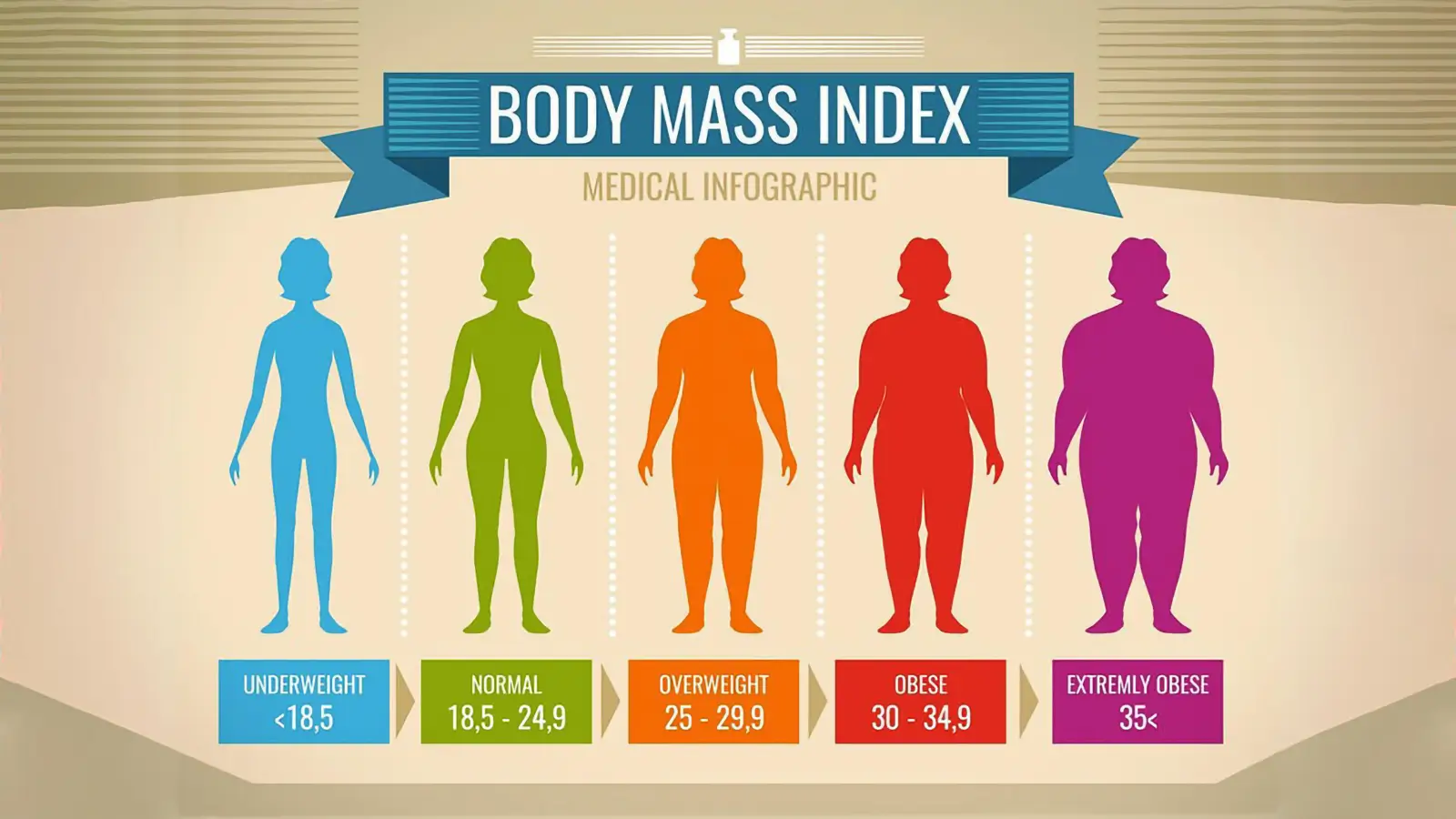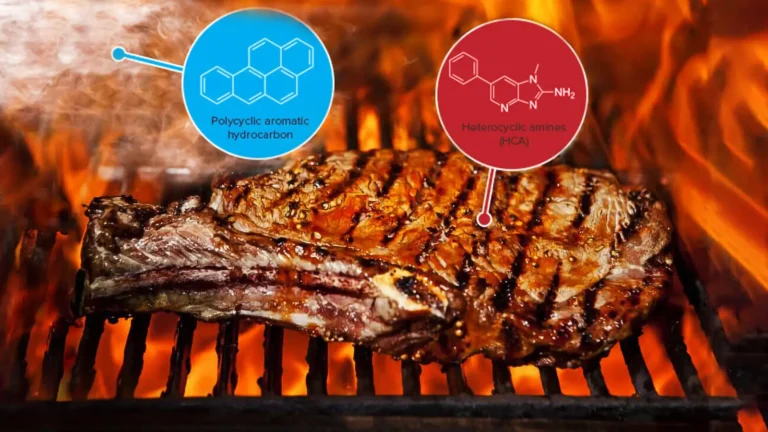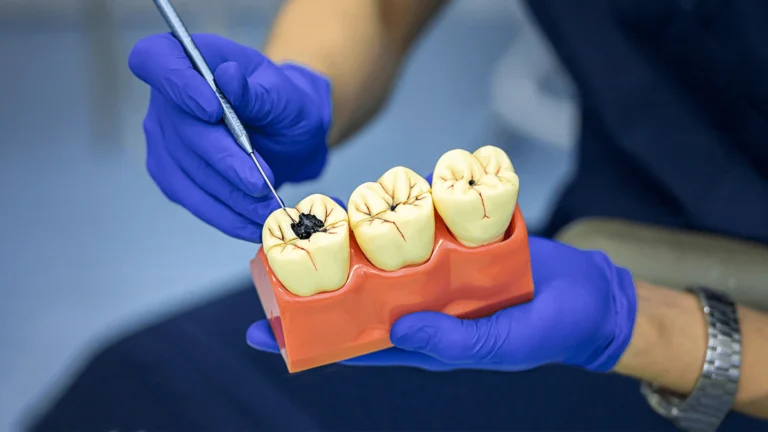Supernormal Stimuli- Binge Eating Disorder and Appetite Regulation
When we see a hamburger, it is supernormal stimuli. Primal urges affect our behavior forcing us into binge eating disorder.
Milos Pokimica
Written By: Milos Pokimica
Medically Reviewed by: Dr. Xiùying Wáng, M.D.
Updated August 4, 2023When we see a hamburger, it is supernormal stimuli, or when we see any food item that does not exist in that form in nature especially if it combines any form of fat and carbohydrates or regular sugar together it is supernormal stimuli. Primal urges or instincts affect our behavior and our reptilian brain and basically control us more than we would like to admit forcing us into binge eating disorder.
Extremely sweet or fatty food that we have today but were not present in nature, captivates the brain reward circuit in much the same way that cocaine and gambling can do. Even just seeing the food will trigger the brain’s response. As quickly as such food meets the tongue, taste buds give signals to different areas of the brain. That will result in a response that will trigger the release of the neurochemical dopamine. Frequently overeating highly palatable foods saturate the cerebellum with a significant amount of dopamine that forces the brain to ultimately adjusts by desensitizing itself, decreasing the number of cellular receptors that identify and respond to the neurochemical. High and constant dopamine level is the form of stimulus that is over-excessive, something called supernormal stimuli.
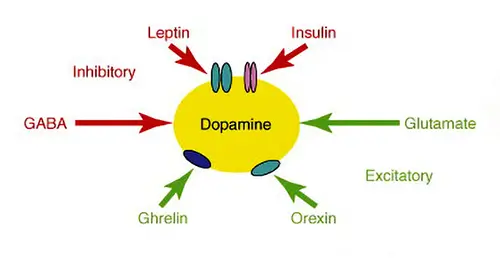
There is a problem with conditioning too. When you spend years working on that promotion or spend years in college and finally get that job or diploma you feel great. It takes time and effort. But when you go to the fridge and open a bag of chips you feel great too. However, there is a problem. In nature, we would have to work very hard to get that bite, and it was not salted or filled with fat and sugar. Alternatively, when we wanted to find a mate, we had to be able to fight off other males. We would have to work for it hard for any reward. It would take significant time and effort.
However, in the modern era, it is effortless. One phone call to the pizza place and that is it. Instantaneously we can reward ourselves with pleasure no time or effort needed. Moreover, there are drugs, movies, video games, alcohol, and gambling. These things are all forms of instant gratification. There are too easy to obtain, and they provide short bursts of pleasure. This conditioning alters our perception and reconfigures our reward centers in the brain. Modern environmental stimulants may activate instinctive responses that evolved before the modern world. When we can get supernormal stimulation all the time effortlessly our brain downregulates the receptors, and we have a problem, we need more. Also, when we do get more, the brain will downregulate the receptors some more, and we again need more. It becomes an addictive behavior before we overdose.
In the book, Wasteland: The (R)Evolutionary Science Behind Our Weight and Fitness Crisis, Harvard psychologist Deirdre Barrett analyzed very well how junk food triggers exaggerated stimulus to natural cravings for salt, sugar, and fats. The issue is that most regular people are not psychologists and can’t detect this in their own behavior.
Supernormal stimuli exist in nature too. When scientists isolate the traits that can trigger certain instincts like colors or shapes or patterns and then apply them to animals, they go behaving extremely instinctively and outside of normal behavior. Instincts had no bounds. Once the researchers isolate the instinctive trigger, they can create greatly exaggerated dummies that animals would choose instead of the realistic alternative. For example, seeing red male stickleback fish would ignore the real rivals and attack wooden replicas with brightly painted underbellies and be even reacting aggressively when the red postal van passed the lab window. Songbirds would abandon their eggs that are pale blue dappled with gray and sit on black polka-dotted fluorescent blue dummies so big that they would continuously slide off. They would prefer to feed fake baby birds with more full and redder mouths than their real ones and the hatchlings would ignore their parents to beg for food from fake beaks with more dramatic markings.
It is easy to assume that these kinds of behaviors reflect some mistake or manipulation but it is far from the truth. The truth is that this is an entirely evolutionary justifiable action and will contribute to the survival of the species. The big colorful egg is a symbol of health for a bird so her instinct is correct and it is conditioned to force her to spare more of her time to go to sit on a black polka-dotted egg because that egg is having more chances for success hatching. In nature, there are no mistakes only in the human interpretation of nature.
Birds will never be exposed to technology, so the supernormal stimuli are positive conditioning for the survival of the species. In a technologically driven modern environment, it is a different story. We have not been adequately adapted in the evolutional sense to our modern environment, and the consequences are terrible.
For example, obesity is an epidemic, and not just obesity, but most of our other health problems as well. All of the so-called diseases of affluence are physiological maladaptations in essence. Why? Because pleasure-seeking actions in all forms drive most of our behavior. It will make us eat even when we are not hungry in pursuit of pleasure and satisfaction. It will make our brain overstimulated in any possible form and way we can think of. The problem is significant on a population scale and can become even worse in specific individuals that have levels of dopamine receptors that are less expressed. It can make them susceptible to compulsive behavior.
Our physiology is not adapted to be continuously bombarded with supernormal stimuli, to have instant gratification in all forms, never to feel hunger, never to have to do any physical activity, and to have a never-ending stream of animal products, sugar, and fat. We act impulsively, emotionally, and instinctively like most other animals because we are conditioned to do it for survival. Like it or not, in the end, this will have lasting health consequences.
Psychophysical dependence on supernormal stimuli is real. Human beings are evolutionarily conditioned for extreme eating because of the scarcity in nature.
For every animal in existence in nature, hunger is the normal state of being. Alternatively, a constant struggle for food would be more precise. For every animal that lives on this planet, food obsession is a daytime job. Most of the time during their lives animals spend searching for food. There are no supermarkets and cans of ready to eat meals. It is the struggle. Moreover, that was a normal condition for humans even today. Well, at least the body physiology part.
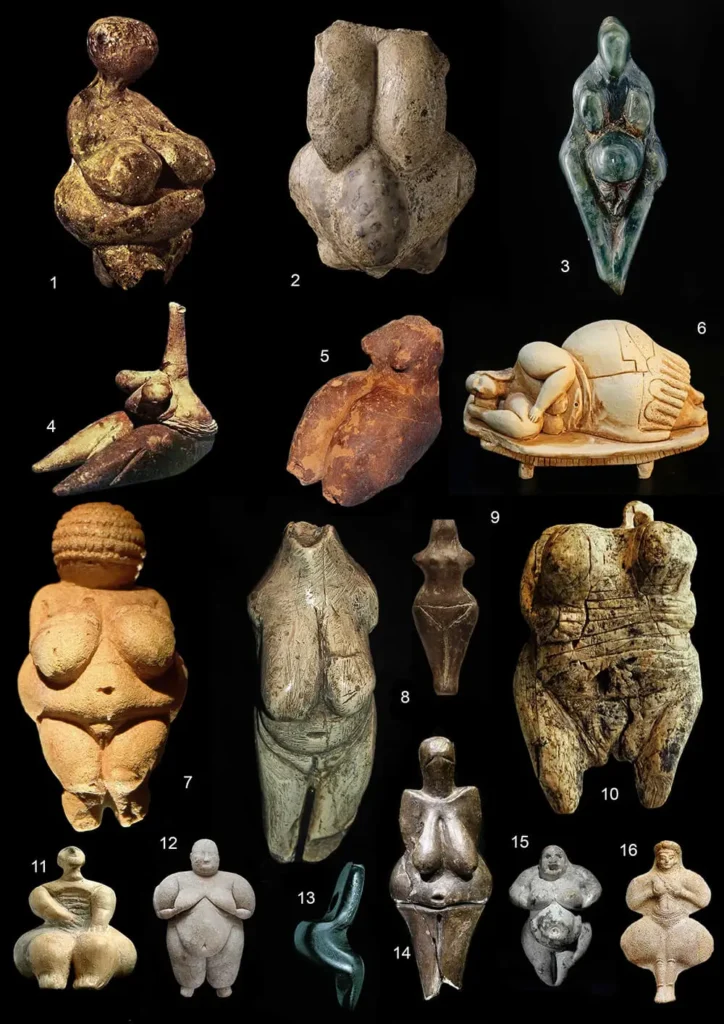
1.Venus of Gagarino, Russia 20,000 BC; 2. Figurine féminine dite manche de poignard de Brassempouy, 23,000 BC; 3. Venus de Losange Italy 25,000 BC; 4. Venus of Tepe Sarab Iran 6500 BC; 5. Neolithic Hassuna Princess „Idol,” 6500-5700 BC Mesopotamia; 6. Malta Venus 4500 BC; 7. Venus of Willendorf Austria 24000 BC; 8. Venus of Moravany Slovakia 23000 BC; 9. Ceramic Figurine of a Woman 5300 BC, The British Museum; 10. Venus from Hohle Fels, Germany 38,000 BC; 11. Cave Ghar Dalam, Malta 5400 BC; 12. Catalhohuk 6000 BC; 13. Venus of Monruz 10,000 BC, Switzerland; 14. Venus of Dolní Vestonice, Czech Republic 29,000 BC; 15. Venus of Anatolia, Turkey 6000 BC; 16. Inanna (Ishtar) Mother Goddess, Mesopotamia 2000 BC.
Our desire and pleasure-seeking behavior are what make us sick. Evolution did not predict electricity and microchips and cars. We are maladapted to our habitat. We have underlined mechanisms that force us to act in an evolutionary protective manner such as overeating food. The not-so-unique obstacle now is that there is no scarcity anymore. Also, even worse, we eat stuff like meat that is not congruent with our physiology. And what is worse we eat it every single meal. And what is even worse we are surrounded by all of the toxic chemicals we never had to deal with in the past, and we do not exercise and move anymore and do not have enough sunlight, and do not have normal relations with other species and other humans. We are technology-dependent, atrophied, and poisoned. We are dependent on our food to be supernormal stimuli and everything around us to be supernormal stimuli. Supernormal is the new normal. Everything has to be supernormal now to be normal. From video games to movies, to drugs to game addiction, to porn addiction, and sex and violence in every frame. Eating kale is not for us anymore. Eating fruit is not for us anymore. The fruit was once upon a time the highest treat we could find in nature. Ultimate dessert. What is fruit today? The hybrid derived from selective breeding is to be sweeter. Had we ever in our life tried real wild fruit without altered genes? Even that over-hybridized variety is no match to pure refined sugar, so we are going to drink colored sugar water like Coke and sodas.
References:
Passages selected from a book: Pokimica, Milos. Go Vegan? Review of Science Part 1. Kindle ed., Amazon, 2018.
Related Posts
Do you have any questions about nutrition and health?
I would love to hear from you and answer them in my next post. I appreciate your input and opinion and I look forward to hearing from you soon. I also invite you to follow us on Facebook, Instagram, and Pinterest for more diet, nutrition, and health content. You can leave a comment there and connect with other health enthusiasts, share your tips and experiences, and get support and encouragement from our team and community.
I hope that this post was informative and enjoyable for you and that you are prepared to apply the insights you learned. If you found this post helpful, please share it with your friends and family who might also benefit from it. You never know who might need some guidance and support on their health journey.
– You Might Also Like –

Learn About Nutrition
Milos Pokimica is a doctor of natural medicine, clinical nutritionist, medical health and nutrition writer, and nutritional science advisor. Author of the book series Go Vegan? Review of Science, he also operates the natural health website GoVeganWay.com
Medical Disclaimer
GoVeganWay.com brings you reviews of the latest nutrition and health-related research. The information provided represents the personal opinion of the author and is not intended nor implied to be a substitute for professional medical advice, diagnosis, or treatment. The information provided is for informational purposes only and is not intended to serve as a substitute for the consultation, diagnosis, and/or medical treatment of a qualified physician or healthcare provider.NEVER DISREGARD PROFESSIONAL MEDICAL ADVICE OR DELAY SEEKING MEDICAL TREATMENT BECAUSE OF SOMETHING YOU HAVE READ ON OR ACCESSED THROUGH GoVeganWay.com
NEVER APPLY ANY LIFESTYLE CHANGES OR ANY CHANGES AT ALL AS A CONSEQUENCE OF SOMETHING YOU HAVE READ IN GoVeganWay.com BEFORE CONSULTING LICENCED MEDICAL PRACTITIONER.
In the event of a medical emergency, call a doctor or 911 immediately. GoVeganWay.com does not recommend or endorse any specific groups, organizations, tests, physicians, products, procedures, opinions, or other information that may be mentioned inside.
Editor Picks –
Milos Pokimica is a health and nutrition writer and nutritional science advisor. Author of the book series Go Vegan? Review of Science, he also operates the natural health website GoVeganWay.com
Latest Articles –
Top Health News — ScienceDaily
- The overlooked nutrition risk of Ozempic and Wegovyon February 4, 2026
Popular weight-loss drugs like Ozempic and Wegovy can dramatically curb appetite, but experts warn many users are flying blind when it comes to nutrition. New research suggests people taking these medications may not be getting enough guidance on protein, vitamins, and overall diet quality, increasing the risk of muscle loss and nutrient deficiencies.
- A 25-year study found an unexpected link between cheese and dementiaon February 4, 2026
A massive Swedish study tracking nearly 28,000 people for 25 years found an unexpected link between full-fat dairy and brain health. Among adults without a genetic risk for Alzheimer’s, eating more full-fat cheese was associated with a noticeably lower risk of developing the disease, while higher cream intake was tied to reduced dementia risk overall. The findings challenge decades of low-fat dietary advice but come with important caveats.
- MIT’s new brain tool could finally explain consciousnesson February 4, 2026
Scientists still don’t know how the brain turns physical activity into thoughts, feelings, and awareness—but a powerful new tool may help crack the mystery. Researchers at MIT are exploring transcranial focused ultrasound, a noninvasive technology that can precisely stimulate deep regions of the brain that were previously off-limits. In a new “roadmap” paper, they explain how this method could finally let scientists test cause-and-effect in consciousness research, not just observe […]
- Why heart disease risk in type 2 diabetes looks different for men and womenon February 4, 2026
Scientists are digging into why heart disease risk in type 2 diabetes differs between men and women—and sex hormones may be part of the story. In a large Johns Hopkins study, men with higher testosterone had lower heart disease risk, while rising estradiol levels were linked to higher risk. These hormone effects were not seen in women. The results point toward more personalized approaches to heart disease prevention in diabetes.
- Sound machines might be making your sleep worseon February 4, 2026
Sound machines may not be the sleep saviors many believe. Researchers found that pink noise significantly reduced REM sleep, while simple earplugs did a better job protecting deep, restorative sleep from traffic noise. When pink noise was combined with outside noise, sleep quality dropped even further. The results suggest that popular “sleep sounds” could be doing more harm than good—particularly for kids.
- This unexpected plant discovery could change how drugs are madeon February 3, 2026
Plants make chemical weapons to protect themselves, and many of these compounds have become vital to human medicine. Researchers found that one powerful plant chemical is produced using a gene that looks surprisingly bacterial. This suggests plants reuse microbial tools to invent new chemistry. The insight could help scientists discover new drugs and produce them more sustainably.
- A hidden cellular process may drive aging and diseaseon February 3, 2026
As we age, our cells don’t just wear down—they reorganize. Researchers found that cells actively remodel a key structure called the endoplasmic reticulum, reducing protein-producing regions while preserving fat-related ones. This process, driven by ER-phagy, is tied to lifespan and healthy aging. Because these changes happen early, they could help trigger later disease—or offer a chance to stop it.
PubMed, #vegan-diet –
- Diet type and the oral microbiomeon February 2, 2026
CONCLUSION: The diet-oral microbiome-systemic inflammation axis is bidirectional and clinically relevant. Understanding both direct ecological regulation and indirect metabolic effects is essential to support precision nutrition strategies aimed at maintaining oral microbial balance and systemic inflammatory risk mitigation.
- Consensus document on healthy lifestyleson January 22, 2026
Proteins are a group of macronutrients that are vital to our lives, as they perform various functions, including structural, defensive and catalytic. An intake of 1.0-1.2 g/kg/body weight per day would be sufficient to meet our needs. Carbohydrate requirements constitute 50 % of the total caloric value and should be obtained mainly in the form of complex carbohydrates. In addition, a daily intake of both soluble and insoluble fiber is necessary. Regular consumption of extra virgin olive oil […]
- Vitamin B12 and D status in long-term vegetarians: Impact of diet duration and subtypes in Beijing, Chinaon January 21, 2026
CONCLUSIONS: This study reveals a dual challenge among Beijing long-term vegetarians: vitamin B12 deficiency was strongly associated with the degree of exclusion of animal products from the diet (veganism), while vitamin D deficiency was highly prevalent and worsened with longer diet duration. The near-universal vitamin D deficiency observed in this study suggests that, in the Beijing context, the risk may extend beyond dietary choice, potentially reflecting regional environmental factors;…
- Nutritional evaluation of duty meals provided to riot police forces in Germanyon January 13, 2026
Background: The primary role of the German riot police is maintaining internal security. Due to challenging working conditions, riot police forces face an elevated risk of various diseases. During duty, forces are provided with meals. A balanced diet can reduce the risk of some of these diseases and contribute to health-promoting working conditions. Aim: First evaluation of the nutritional quality of duty meals in Germany based on German Nutrition Society recommendations (DGE). Methods: In…
- Iodineon January 1, 2006
Iodine is an essential trace nutrient for all infants that is a normal component of breastmilk. Infant requirements are estimated to be 15 mcg/kg daily in full-term infants and 30 mcg/kg daily in preterm infants.[1] Breastmilk iodine concentration correlates well with maternal urinary iodine concentration and may be a useful index of iodine sufficiency in infants under 2 years of age, but there is no clear agreement on a value that indicates iodine sufficiency, and may not correlate with […]
Random Posts –
Featured Posts –
Latest from PubMed, #plant-based diet –
- From paddy soil to dining table: biological biofortification of rice with zincby Lei Huang on February 4, 2026
One-third of paddy soils are globally deficient in zinc (Zn) and 40% of Zn loss in the procession from brown rice to polished rice, which results in the global issue of hidden hunger, e.g., the micronutrient deficiencies in the rice-based population of developing countries. In the recent decades, biofortification of cereal food crops with Zn has emerged as a promising solution. Herein, we comprehensively reviewed the entire process of Zn in paddy soil to human diet, including the regulatory…
- Molecular Characterization of Tobacco Necrosis Virus A Variants Identified in Sugarbeet Rootsby Alyssa Flobinus on February 3, 2026
Sugarbeet provides an important source of sucrose; a stable, environmentally safe, and low-cost staple in the human diet. Viral diseases arising in sugarbeet ultimately impact sugar content, which translates to financial losses for growers. To manage diseases and prevent such losses from occurring, it is essential to characterize viruses responsible for disease. Recently, our laboratory identified a tobacco necrosis virus A variant named Beta vulgaris alphanecrovirus 1 (BvANV-1) in sugarbeet…
- Nutrition in early life interacts with genetic risk to influence preadult behaviour in the Raine Studyby Lars Meinertz Byg on February 3, 2026
CONCLUSIONS: Nutrition in early life and psychiatric genetic risk may interact to determine lasting child behaviour. Contrary to our hypothesis, we find dietary benefits in individuals with lower ADHD PGS, necessitating replication. We also highlight the possibility of including genetics in early nutrition intervention trials for causal inference.
- Effect of the gut microbiota on insect reproduction: mechanisms and biotechnological prospectsby Dilawar Abbas on February 2, 2026
The insect gut microbiota functions as a multifunctional symbiotic system that plays a central role in host reproduction. Through the production of bioactive metabolites, gut microbes interact with host hormonal pathways, immune signaling, and molecular regulatory networks, thereby shaping reproductive physiology and fitness. This review summarizes recent advances in understanding how gut microbiota regulate insect reproduction. Accumulating evidence demonstrates that microbial metabolites…
- Rationale and design of a parallel randomised trial of a plant-based intensive lifestyle intervention for diabetes remission: The REmission of diabetes using a PlAnt-based weight loss InteRvention…by Brighid McKay on February 2, 2026
CONCLUSIONS: This trial will provide high-quality clinical evidence on the use of plant-based ILIs to address the epidemics of obesity and diabetes to inform public health policies and programs in Canada and beyond.
- Diet type and the oral microbiomeby Daniel Betancur on February 2, 2026
CONCLUSION: The diet-oral microbiome-systemic inflammation axis is bidirectional and clinically relevant. Understanding both direct ecological regulation and indirect metabolic effects is essential to support precision nutrition strategies aimed at maintaining oral microbial balance and systemic inflammatory risk mitigation.

